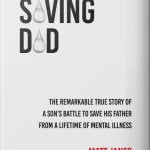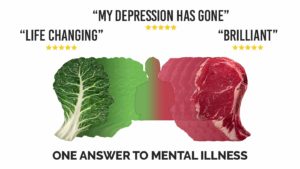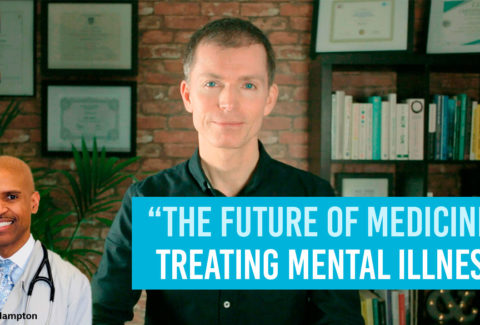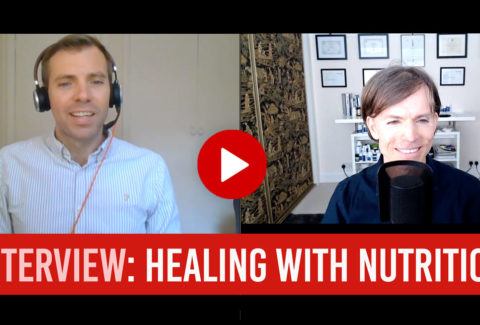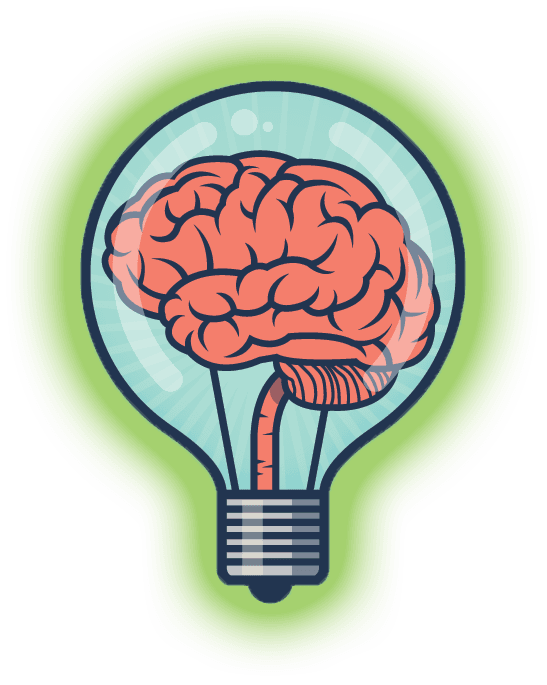Nutrition & Mental Health – Insights You Won’t Hear Anywhere Else
April 15, 2020 2021-07-25 10:46Nutrition & Mental Health – Insights You Won’t Hear Anywhere Else
Nutrition & Mental Health – Insights You Won’t Hear Anywhere Else
Watch me give the closing keynote speech at the 2020 Mental Health Summit in London. Here, I provide insights into how I healed my father’s chronic depression using nutrition.
If you want to do the same, enrol in my online program, One Answer to Mental Illness. Many people have already resolved their mental illness using my nutritional approach, including Scott, who said, “I took Matt’s program, then 5 days after changing my diet, my depression began to lift. After 10 days, I felt like a different person, full of energy and hope. I’m in no doubt that One Answer to Mental Illness represents a genuine alternative to psychiatric medication.”
Here’s what Don Ste Marie says about my program, “Brilliant, A Game Changer. I am confident that this course will help thousands that may be struggling with their mental health. It will also help countless others optimize their general health. This course is a tour de force with respect to understanding the relationship between what we ingest and how we feel and behave. Matt does a tremendous job in providing the history and science on a subject that most of us know little about. I don’t think I have learned so much on a topic in 4 hours in my life. I highly recommend this course. Thank you Matt, for your research, energy, and passion.”
Then, Annic Scholer Musfeld says, “A Milestone in the History of Mental Health. ‘One Answer to Mental Illness’ is simply incredible. I am impressed how clearly Matt leads you through a highly complex topic like the nervous system, how he explains what happens with you when the sympathetic or parasympathetic strand dominates, and how you can get back into balance using the right diet and supplements. If you are struggling with mental health problems and looking for a solution away from classical medicine, then try this program, I highly recommend it. Thanks Matt.”
Enrol here – One Answer to Mental Illness
Video transcript
Once upon a time, there was no such thing as mental illness.
It’s the 1930s when dentist and epidemiologist Dr Weston Price travels the world to discover the cause of dental decay. Over a period of 8 YEARS, he travelled to 5 continents. And lived with 14 different tribes from 14 different countries. From the Eskimos of Alaska to the Natives of Canada and the Aborigines of Australia. And he documented and photographed 1000s of these traditional people, as well as their descendants.
He captured his findings in this 528 page masterpiece, Nutrition and Physical Degeneration, capturing not only their dental health, but also their physical and mental health.
So what did he find?
Most notably, he discovered that different groups had different diets. Some, like the Eskimos of Alaska, ate an all-animal diet, made up of 80% fat and 20% protein. Fatty red meat, fish, seal and whale blubber. No vegetables and no grains.
The Polynesians ate a completely different diet. Coconut based, rich in fermented coconut milk, yoghurt and cheese, some meat and fish, no grains.
The Indians of the High Andes were different again. They ate a grain based diet, lots of quinoa, plus some fruit, fish, and milk, cheese and yoghurt from llamas, plus some llama meat.
His second finding was that people ate foods that were available both locally and naturally. There were no refined foods. No white rice, no white flour, no white bread, no white spaghetti. No canned foods. No synthetic products, no fertilisers and no pesticides.
His 3rd finding was that on these traditional diets, people thrived.
There was no chronic disease. No heart disease, no hypertension, no diabetes, obesity, arthritis or allergies. No cancer.
And, most interesting to me…
They didn’t even have a word for depression. They had no idea what melancholy was. Instead, they thrived, both physically and mentally.
However, their descendants, who moved into the towns, where the western diet was readily available, developed chronic disease. As well as dental decay, they began to suffer from cancer, heart disease, diabetes and depression.
Weston Price’s work has received wide praise from many different people. But, whilst he observed and documented these extraordinary findings, he had no idea why, from a scientific point of view, people didn’t get sick when they followed their traditional diet. For that enlightenment, we’ll need to turn our attention to two doctors, who, whilst working in completely different places, discovered the same finding.
During his lifetime, Dr. Francis Pottenger was the world’s leading expert on the Autonomic Nervous System.
This is a system of nerves, muscles and organs over which you have no conscious control.
The autonomic nervous system is involved in all physical movement, respiration, cardiovascular function, thoughts, and immune function. All of your metabolism and digestion.
Given the extent of its control over the body’s processes, it’s perhaps not surprising to learn that it plays a critical role in our physical and mental health.
There are two branches to the autonomic nervous system.
The sympathetic branch is responsible for our short term survival. It gives us our get up and go, mobilising our respiration and cardiovascular system, as well as our muscles, to the extent where any movement of any kind involves this branch.
Without activating the sympathetic branch, I wouldn’t be able to do this presentation.
Then there’s our parasympathetic branch. It’s concerned with our long term survival and as such, needs to become activated for us to sleep, fight off bugs and extract fuel from the food we eat.
Over a 40 year period, Dr Francis Pottenger treated thousands of patients and observed that they could be divided into 1 of 3 groups, according to the genetically predetermined balance in their autonomic nervous system.
He discovered that:
Group 1 patients had an overly strong sympathetic system and a weak parasympathetic system.
All of the organs stimulated by the sympathetic system were highly developed, such as the heart, lungs, muscles and left hemisphere of the brain.
But all those stimulated by the parasympathetic branch, such as the digestive system, immune system and brain’s right hemisphere were weak and underdeveloped.
He learned that this greatly affected not only their physiological and psychological characteristics, but also their health.
With their strong sympathetic system, this group made excellent athletes, academics and business leaders. They’re the kind of people who can have 4 to 5 hours sleep and still perform at a high level. Think Margaret Thatcher and Ronald Reagan.
However, due to their weak parasympathetic system and associated organs controlled by this branch, they suffered from health problems such as poor digestion, irritable bowel, hyperthyroidism and solid tumour cancers.
Group 3 patients were the polar opposite. They had an overly strong parasympathetic system and a weak sympathetic system.
All of the tissues, organs, and glands normally stimulated by the strong parasympathetic system were overly developed and overly active, such as the right hemisphere of the brain, digestive system and immune system.
All of those organs controlled by the sympathetic system were weak and underdeveloped, including the heart, lungs and muscles.
Group 3s are usually creative, patient, slow to anger and are good with people.
Instead of the illnesses suffered by the Group 1 patients, Group 3 patients suffered from a completely different set of diseases, including heart failure, blood based cancers, allergies, asthma and depression.
Group 2 patients had balance in these two systems and in the main enjoyed good health.
The next piece in our puzzle comes in the form of Dr. Daniel Funkenstein.
Over the course of 30 years, beginning in the late 1940s, he investigated the role of the autonomic nervous system in mental illness.
Like Pottenger, he observed that people could be split into 3 autonomic groups. The only thing that was different was the language. Pottengers Group 1s he called Sympathetic hyper-responders, Group 2 balanced reactors and Group 3, sympathetic hypo-responders.
He did thousands of investigations, both on his Harvard Medical School students, as well as his psychiatric patients, and repeatedly found that whilst his students fell into the balanced group 2, his hospital patients fell into either Group 1 or Group 3.
Then came the big breakthrough.
When his patients had recovered from their illness, sometimes anxiety and schizophrenia and other times depression, and he retested their grouping, they had moved from group 1 or 3, to the balanced group, Group 2.
He discovered that mental illness lies in an IMBALANCED autonomic nervous system and BRINGING ABOUT BALANCE was the secret to mental health.
His findings led Dr. Nicholas Gonzalez, one of the world’s leading oncologists, to say that had Dr. Funkenstein’s work had been taken more seriously, it would have changed the course of psychiatry forever.
So why didn’t it?
Because at the exact same time, the first psychiatric medications were being manufactured from hydrazine which was found in left over German world war 2 bombs and psychiatry went off in a completely different direction, first chasing hypotheses about dopamine, then serotonin.
Okay, so before I continue, let’s quickly recap what we’ve learned so far.
- Different people thrive on different diets (Price)
- People naturally fall into 1 of 3 different autonomic groups (Pottenger)
- When people are mentally ill, they belong to Group 1 or Group 3. When they recover, they change group, to Group 2. (Funkenstein)
Now I’m going to bring all of this science together, and to do that, I’m going to tell you my personal story.
I’m 47 and since I was 3 years old, my dad has suffered from severe depression. So severe in fact that over the course of the last 4 decades, he’s been treated with several hundred courses of electric shock therapy.
And he’s been an inpatient in psychiatric hospital 7 times.
In February last year, doctors found two blood clots on his lungs, which meant that he couldn’t have his maintenance electric shock therapy, because the anaesthetic might have cost him his life.
But without his regular treatment, his mental health rapidly deteriorated and he was once again admitted to psychiatric hospital. Without ECT, my dad has never left hospital. You see, he suffers from drug resistant depression.
With dad unable to have his regular treatment, I was desperate to find an answer, so I went on a journey of discovery.
Through my neuroscience training, I already knew about the work of Drs. Price, Pottenger and Funkenstein. But what I didn’t know was HOW to balance the autonomic nervous system.
And on this journey, I learned of Dr Nicholas Gonzalez, who was treating cancer in the US, with extraordinary outcomes, using a three tiered protocol, one of which involved using nutrition to balance the autonomic nervous system and restore health.
In searching for an answer to my dad’s distress, I bought all of Gonzalez’s textbooks, watched his videos and read his clinical papers.
Through his physiology, psychology and health profile, I diagnosed dad as a Group 3 patient, just like Funkenstein had described. These are the people who both he described as having an overly strong parasympathetic branch and a weak sympathetic branch. So, I knew that to get dad well, I needed to boost his sympathetic branch, to bring him back into balance and move him into Group 2.
But whilst he was in the hospital, I didn’t have control over his diet, so I needed to rely upon the vitamins, minerals and trace elements that Gonzalez used to balance the autonomic nervous system of his cancer patients.
And two weeks after he’d begun taking them…
For the first time in 30 years, he left psychiatric hospital without any ECT.
And a year later, he still hasn’t had any.
Mum and Dad have been married for 55 years.
Last year, I published a book about our journey, called Saving Dad. And I’ve made available a free copy for everyone here today.
But of course, my dad is just one patient. A severe case, yes, but still, only one patient. For this to be something worth pursuing further, we need more evidence, right?
Now, I’m sure that some of you are aware of Dr Jordan Peterson, the renowned psychologist. Here’s a clip of him on Joe Rogan’s podcast.
It might be a mystery to Dr Peterson, but given what I’ve said so far, I wouldn’t be surprised if it’s beginning to make sense to you. Like my dad, Dr Peterson is a Group 3 parasympathetic dominant.
The reason why his depression has lifted since he started his carnivore diet is that red meat is filled full of amazing properties that are like the elixir of life to parasympathetic dominants. And here’s why.
Red meat contains lots of phosphates and sulphates. In the body, they convert into free fatty acids and in an acid environment, the sympathetic environment turns on. That brings about balance, and health, in a parasympathetic dominant.
Furthermore, red meat is loaded with phenylalanine and tyrosine, amino acids that are the precursors to epinephrine and noradrenaline, the two main neurotransmitters on the sympathetic branch.
And by boosting these sympathetic nerves, we restore balance in Group 3 patients.
Red meat is also loaded with the amino acids; aspartic and glutamic acid. Glutamate is an excitatory neurotransmitter which also turns on the sympathetic system.
So when Jordan Peterson eats meat, he’s boosting his sympathetic nervous system, restoring balance in his autonomic nervous system, which is lifting his depression. And is moving him from Group 2 to Group 3.
And now that my dad is out of hospital, and I have more control over what he eats, this is the diet he follows. A high red meat diet, fish, root vegetables, along with his natural supplements.
And he hasn’t had ECT for over a year. Whereas previously he needed it every two weeks to stay out of hospital.
But that’s only two patients, right? We need more evidence.
So after learning about Jordan Peterson’s experience, I got in touch with his daughter, Mikhaila, who also resolved her depression by eating a carnivore diet. She told me that she’d gone a step further. She’s set up a Facebook group called The Lion Diet. These are people who are also eating a diet high in meat, especially red meat. Which for me, is a huge source of data and evidence.
So I ran a poll, to see what effect the carnivore diet was having on people’s depression, “Has the Lion Diet improved your depression?”
The results were overwhelming.
44 people said ‘Yes’, nobody said ‘No’.
5 people said ‘It’s too early to say.’
And here’s what people said.
Aaron – “I’ve had clinical depression and anxiety most my life. This diet literally saved me from suicide. Depression is completely gone.”
Kathleen – “Going carnivore helped to save me from suicide in October last year.”
April – “After day 5 of being on the carnivore diet, my depression disappeared almost 100% and same with my anxiety!!”
Jin-Young – “Total transformation for me. No more inexplicable sense of doom. It’s amazing. I think I’m living the way folks without depression have experienced life.”
So I’d like to propose that there is a new hope.
All of you, as well as your colleagues, friends and family have the capability of achieving exceptional mental health through nutrition, by tailoring your diet to your autonomic group.
However, a word of warning. Doctors do not know this information.
I work with many individuals and companies to help them with their mental health.
This approach works.
Please let’s help each other.
If you need help with mental health in the workplace, please contact me.
And please connect with me and share this information.
Let’s change the mental health landscape together.
Thank you for listening.



